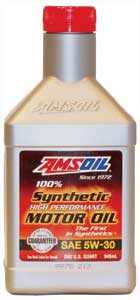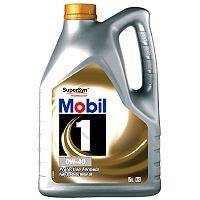Changing Oil In A Motorhome Will Protect Your RV Investment
When it comes to changing oil in a Class C Motorhome, you are faced with a unique situation that deserves a bit of discussion. This page is not going to get into the specifics on how to change your oil... we are going to discuss just how often should you change your oil.
Frequency Schedule Can Be Confusing
On average, most Class C Motorhome owners only put around 5 to 6 thousand miles per year on their rigs. Therefore, you can find yourself changing oil four times a year and only driving 6,000 miles. Should we be doing this, or is there a way to decrease our oil change frequency cycles?
considered safe for at least 6000 miles.

Most vehicles are driven daily, or at least weekly. Motorhomes, it seems, are parked for long periods of time. This is why, for example, there is an issue with premature rotting in RV tires.
So, it appears that if you are using the best natural petroleum product available; this will dictate that you to change this, "best motor oil" every 3 months. Are you, therefore,kind of spinning your wheels... no pun intended!
We know you will have to change your oil on a scheduled basis. The big question is, what schedule are we to use? Should we become involved with all of the research required to achieve an extended oil change cycle?
traditional, less refined oil.
Well, changing oil is not my most favorite thing to do, so for the last couple of years, I've begun using synthetic products when I change my oil. The synthetics simply will not degrade as fast as your natural oils. This is due, in large part, to the uniform molecular structure that makes up this oil.
The size of the molecules matter because of the effect that heat generated by the engine will have on oil. Let's go into this heat issue and see how it relates to having a better performing lubricant in your Class C Motorhomes.
more stable oil viscosity.
What do I mean when I say "more stable oil viscosity"? Well, this is going to take a bit of explaining. Just bear with me a bit. The enemy of oil is heat! So, it's not surprising to find out that heat is the biggest reason for changing oil.
How does heat affect lubrication? Well, let's look at the size of the molecules that make up natural oil. When you break it down, you will find that it contains various sized molecules. That is just the way nature makes it.
When your oil is fresh, this is no big deal, but natural oil has a low flash point... usually between 350 to 440 degrees Fahrenheit. When this flash point is reached, the smaller, or lighter molecules start to burn off.
Over time, this leaves a thick sludge-like material. This is a breakdown of the oil properties and it changes the composition of the oil. This alteration occurs every time you fire up the engine.
and acid issues that can degrade your oil.
Sludge will not lubricate well, and it also holds the heat which causes more of the smaller molecules to burn off. Therefore, you have premature engine wear due to a decreased lubrication capacity and overheating of specific locations surrounded by sludge. With traditional oils, the only way to prevent this is to lessen the time duration between your drain interval cycle.

Synthetic oils,
however, have been modified to only contain uniformed sized molecules. The flash point temperature range for synthetic oil is between 450 and 500 degrees Fahrenheit.
You do not have as much of an issue with breakdown because there are no lighter oils that can burn away. Synthetic oils last longer; therefore, changing oil can be delayed due to increased oil life.
All things being equal, synthetic oil would last forever... however, there is another factor to be considered. This gets interesting... the killer of synthetic oil is contamination.
If you could keep this contamination out of the oil, it would last a very long time. In fact, under ideal conditions, AMSOIL claims a life span of over 25,000 miles between changing the oil! That's a lot of miles!
You Achieve Extended Oil Changes
Just be aware that unless you put a good aftermarket oil and air filtration system on your rig, you will not get that type of mileage out of your synthetic oil. In fact, you should still change your oil between 3,000 and 5,000 miles or so.
Most of our modern engines produce large amounts of heat in relation to the size of the motors. Class C Motorhomes still mostly use big block V8's and v10's, and the engineers are getting maximum horsepower from these units. So it is very important to get the best lubrication as possible.
 I've been using Mobil 1 for the last couple of years and I find that I usually change the oil twice a year. I do not worry about anything except dirt. I'm still using Original Equipment Manufacturer (OEM) parts; therefore, I have to get rid of this accumulated dirt. I do this through oil changes.
I've been using Mobil 1 for the last couple of years and I find that I usually change the oil twice a year. I do not worry about anything except dirt. I'm still using Original Equipment Manufacturer (OEM) parts; therefore, I have to get rid of this accumulated dirt. I do this through oil changes.
I could probably get away with changing the oil once a year, but I'm just too old school to be comfortable with that idea. I'm thinking that before I would consider that length of time between changing the oil, I would be having the oil analyzed. Changing the oil in my Class C Motorhome only once a year would make me very nervous with the filtration system I'm using now.
However, I'm thinking that when I upgrade my Class C Motorhome with a newer model, I will definitely go ahead and install a good aftermarket filtering system. At that time, you can believe that I will be changing oil a lot less often!
Since most of us typically let our rigs set for periods of time, synthetic oils appear to be a good match for our unique RV lifestyle.

Return To Top Of Page
Leave Changing Oil In Your Class C Motorhome Will Protect Your RV investment...And Return RV Maintenance: Now That You Have Been Using Your Class C Motorhome...
Leave Changing Oil In Your Class C Motorhomee Will Protect Your RV investment... And Return To The Class C Motorhome: How To Achieve The Maximum RV Lifestyle! Page
YOUR STORIES
1995 Tioga Montara
Had a Leak - Ouch!
A Simple Way To Put An Electrical Thermostat On A Small Space Heater
In A Truck Camper!
A Great Destinaton, With An Unexpected Outcome!
Test Link
Below: For An Alternative Destination... A Four Mile Hike Around Sugar Pine Reservoir

A Good Place To Begin The Joshua M. Hardt Memorial Trail Is At The Dam. This 3.5 Mile Trail Is Good For Foot Traffic And Bicycles... No Motorized stuff

The Manzanita Day Use Area Is A Good Place To Sit And Watch The Wind
Play With The Water!

Another View From The Joshua M. Hardt Memorial Trail... Morning and Evening Are The Best Times To Hike This Trail. The Still Reflections Will Capture Your Attention

You May Want To Bring A Camera... There Are Large Birds Of Prey High In The Ski





